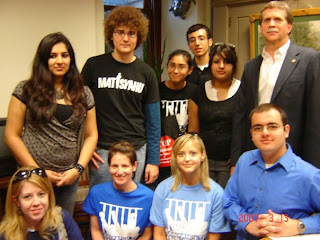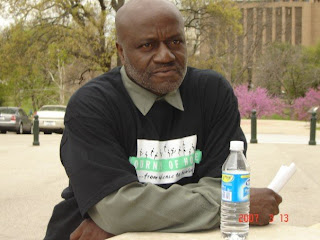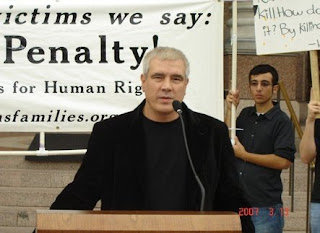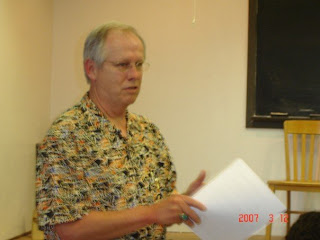 The 2007 Anti-Death Penalty Alternative Spring Break organized by Texas Students Against the Death Penalty and co-sponsored by Campus Progress, Texas Moratorium Network, the Campaign to End the Death Penalty, Texas Coalition to Abolish the Death Penalty, Campus Progress, Equal Justice USA, Amnesty International, the ACLU, the National Coalition to Abolish the Death Penalty, Journey of Hope, Victims of Texas and Murder Victims’ Families for Human Rights. was a big success.
The 2007 Anti-Death Penalty Alternative Spring Break organized by Texas Students Against the Death Penalty and co-sponsored by Campus Progress, Texas Moratorium Network, the Campaign to End the Death Penalty, Texas Coalition to Abolish the Death Penalty, Campus Progress, Equal Justice USA, Amnesty International, the ACLU, the National Coalition to Abolish the Death Penalty, Journey of Hope, Victims of Texas and Murder Victims’ Families for Human Rights. was a big success.
Students received valuable training and experience in grassroots organizing, lobbying, preparing a direct action and media relations. During the week, students immediately put what they learned into action during activities such as the “Day of Innocence Rally” at the
As a result of all their hard work throughout the week, the students generated hugely positive media coverage that helped educate the public on the issue of the death penalty. Scott Cobb, president of Texas Moratorium Network compared the week’s events to past struggles for social justice by saying, “this is an historical echo to what happened in the 1960s when people came down to the South during the Civil Rights Movement to help people register to vote, what they called freedom summers. This is very similar to what was going on back then, but here the issue is the death penalty.”
 Planning for the alternative spring break began last October. During the weeks leading up to the event, the students who organized the program had to solve various problems, such as finding replacements for a couple of speaker cancellations and finding cheap housing in
Planning for the alternative spring break began last October. During the weeks leading up to the event, the students who organized the program had to solve various problems, such as finding replacements for a couple of speaker cancellations and finding cheap housing in
 During the week students had the chance to meet and talk with people who have first-hand experience with the death penalty, such as, Kerry Cook, an innocent man who spent 22 years on Texas Death Row and recently wrote a book, “Chasing Justice: My Story of Freeing Myself After 22 Years on Death Row“. Shujaa Graham, an African American man who spent 3 years on
During the week students had the chance to meet and talk with people who have first-hand experience with the death penalty, such as, Kerry Cook, an innocent man who spent 22 years on Texas Death Row and recently wrote a book, “Chasing Justice: My Story of Freeing Myself After 22 Years on Death Row“. Shujaa Graham, an African American man who spent 3 years on
 The students also got a lesson in free speech during the week when a
The students also got a lesson in free speech during the week when a
Several of the students have said that they intend to remain active in the anti-death penalty movement when they return home, including Zainab Alam of Katy , Texas
You can find the full schedule of this year’s events at Texas Students Against the Death Penalty’s website: http://www.springbreakalternative.org
Pictures from top to bottom: 1. Students protesting the death penalty during the SXSW festival in downtown Austin. 2. Protest at the Governor’s mansion. 3. Talking to Rep. Lon Burnam (D-Fort Worth) during the Lobby Day. 4. Shujaa Graham listening during the “Day of Innocence Rally.” 5. Kerry Cook speaking at the “Day of Innocence” rally. 6. Sam Milsap explaining the case of Ruben Cantu to the spring break students.












